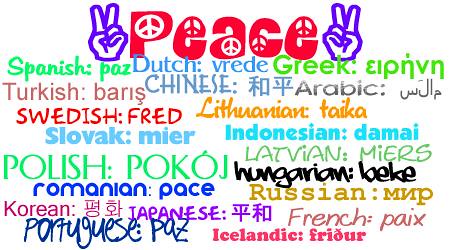- Tercera sessió: Michael Mcarthy es pregunta què és el que realment ensenyem a les aules i ho contrasta amb els resultats analitzats per ordinador que demostren que les paraules més freqüents no són normalment les que surten als llibres.
- Quarta sessió: en Marc Olmedo, company d’ universitat i de feina a l’ Hospitalet, mostra juntament amb altres professors de l’ escola oficial d’ idiomes com es poden utilitzar els tòpics culturals per ensenyar anglès. Entre els tòpics, la religió, el futbol, el menjar i… com no, el te. D’ aquest últim val la pena veure aquest rap descarat sobre els costums anglesos que porta el títol de ‘Motherfucking tea’.
- Cinquena sessió: una manera diferent d’ ensenyar com es fa el futur en anglès és la de la professora Sarah Bishop, qui després d’ analitzar la teoria i els exercicis que ofereixen els llibres conclou que tots són plens d’ incongruències i excepcions inexplicables. La solució? L’ hauran de jutjar els alumnes de 3r d’ ESO, amb qui posaré a proba la seva teoria.
- Sisena sessió: Gerard McLoughlin parla de com els llibres s’ allunyen de l’ anglès real i proposa textos extrets de la vida mateixa.
- Setena sessió i última del divendres: Josh Goldsmith ens demana que aprofitem els coneixements de català i castellà que tenen els alumnes per aprofundir en l’ anglès. De fet, posa en dubte que les classes íntegres en anglès siguin millors que les classes en què la llengua materna dels alumnes sigui present.
Author Archives: whitefield
The APAC convention (Thursday)
He inclòs un petit resum de les conferències i xerrades a les que vaig assistir durant les jornades de professors d’ anglès de l’ APAC. Com a excepció, el redactat és en anglès facilitar la lectura a les famílies que vulguin llegir els comentaris:
- Primera sessió: exposició del professor David Graddol sobre el creixement de les llengües i el paper de l’ anglès com a llengua franca. Les seves explicacions giren al voltant del seu llibre English next, que es pot baixar gratuïtament des d’ aquesta pàgina del British Council. Segons les seves dades, tots els països que fa 30-40 anys van començar a prendre’s seriosament l’ aprenentatge de l’ anglès ho han aconseguit fa poc (Holanda, Finlàndia, Singapur…).
- Segona sessió: Hugh Dellar presenta un recorregut biogràfic de com va passar d’ ensenyar gramàtica pura i dura a adonar-se de què la millor manera d’ ensenyar anglès real era a través del vocabulary.
Away on Thursday afternoon and Friday

I will not be in the school this afternoon nor tomorrow as I am attending the APAC conference. It is a great opportunity for teachers of English to learn about new books, teaching techniques and other people’s experiences. As last year, I hope I come back from it with a lot of new ideas for the classroom.
See you on Monday!
Fonts for your projects
You can imitate Chinese, Japanese calligraphy or use fonts that look like Russian, Vietnamese, etc for your language project.
The web to visit and download the fonts is www.dafont.com and the special fonts are in the theme section, under the foreign heading. More information here.
More Pau Gasol!
The highlights of Gasol’s first game with the Lakers. No comments, just… awesome (as the Americans say).
A language game in the ‘game of the month’ section
Hello everybody, March’s game is a classic: ‘Bookworm Adventures‘. It’s just the online version and it’s a bit different from the one we have sometimes played in the classroom, but… it’s free.
If you have problems with the flash plugin, follow the steps on top of the screen (1. Get the PopCap plugin, and 2. Install it).
Good luck and give me your high-scores!!!
International Day of Mother Tongues

How much ‘will’ do you know?
- Complete this exercise, and it means that you have a very basic level.
- Try this one for basic-intermediate level.
- If you finish this one, your level is intermediate.
- This exercise here is for more advanced students who can distinguish between ‘will’ and ‘be going to’.
So … what level are you?

What is Acahualco, Tlacaxipehualiztli, Tozoztontli, Hueytozoztli, Toxcatl, Etzacualiztli, Tecuilhuitontli, Hueytecuilhuitontli, Tlaxochimaco, Xocohuetzi, Ochpaniztli, Teoteclo, Tepeilhuitl, Quecholli, Panquetzaliztli, Atemoztli, Tititl, and Itzcalli?
Tomorrow is the international day of mother tongues. To celebrate it, answer the following questions:
- What is Acahualco, Tlacaxipehualiztli, Tozoztontli, Hueytozoztli, Toxcatl, Etzacualiztli, Tecuilhuitontli, Hueytecuilhuitontli, Tlaxochimaco, Xocohuetzi, Ochpaniztli, Teoteclo, Tepeilhuitl, Quecholli, Panquetzaliztli, Atemoztli, Tititl, and Itzcalli?
- What language is it in?
Enciclopèdia Catalana in English!
Enciclopèdia Catalana has just launched their new internet version of the famous encyclopaedia. You can type the word that you want to look up and then decide if you want to use the Catalan encyclopedia, the dictionary or the English encyclopaedia.
.jpg)
